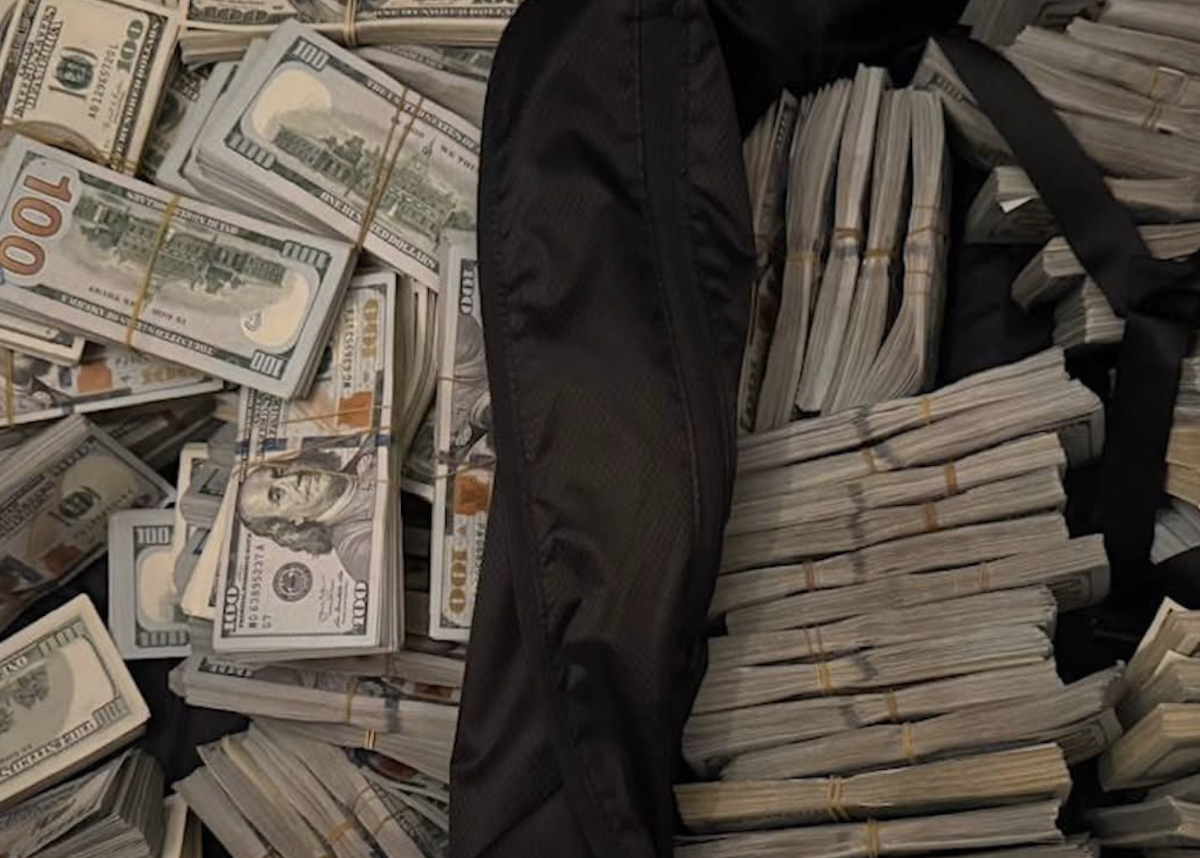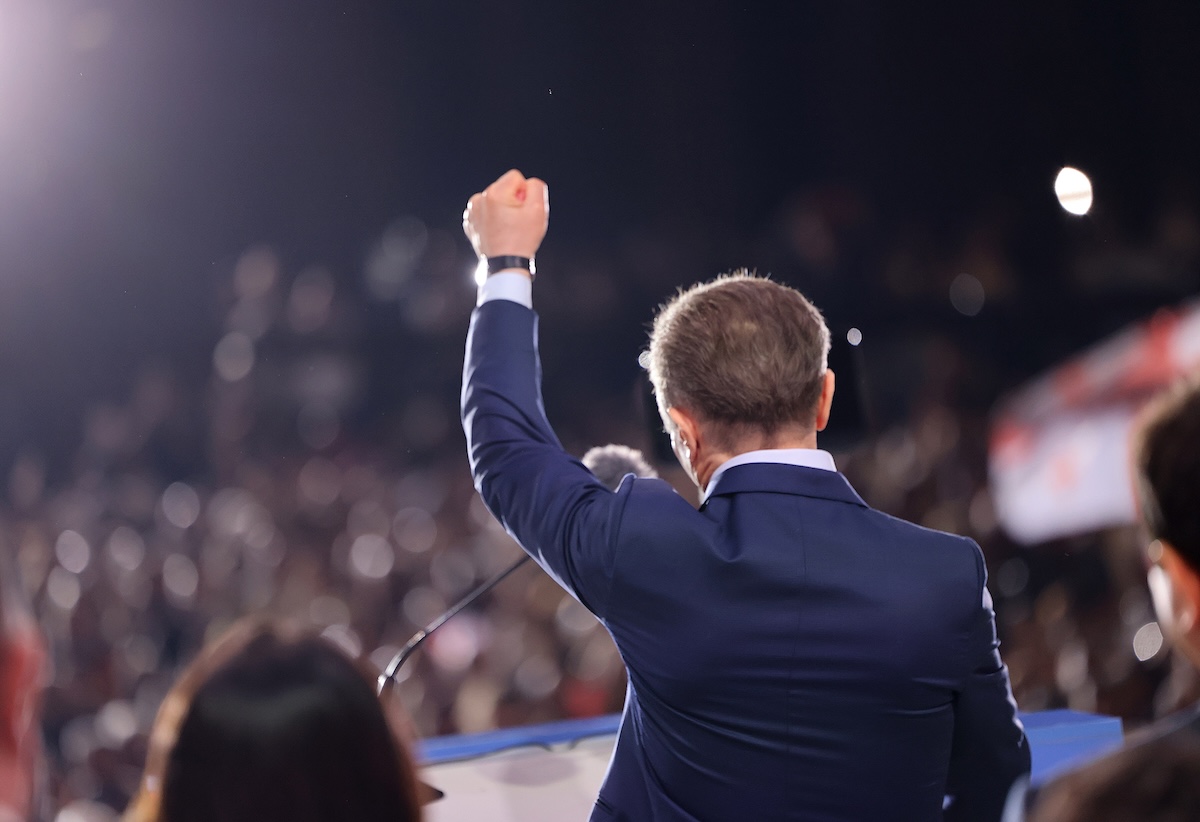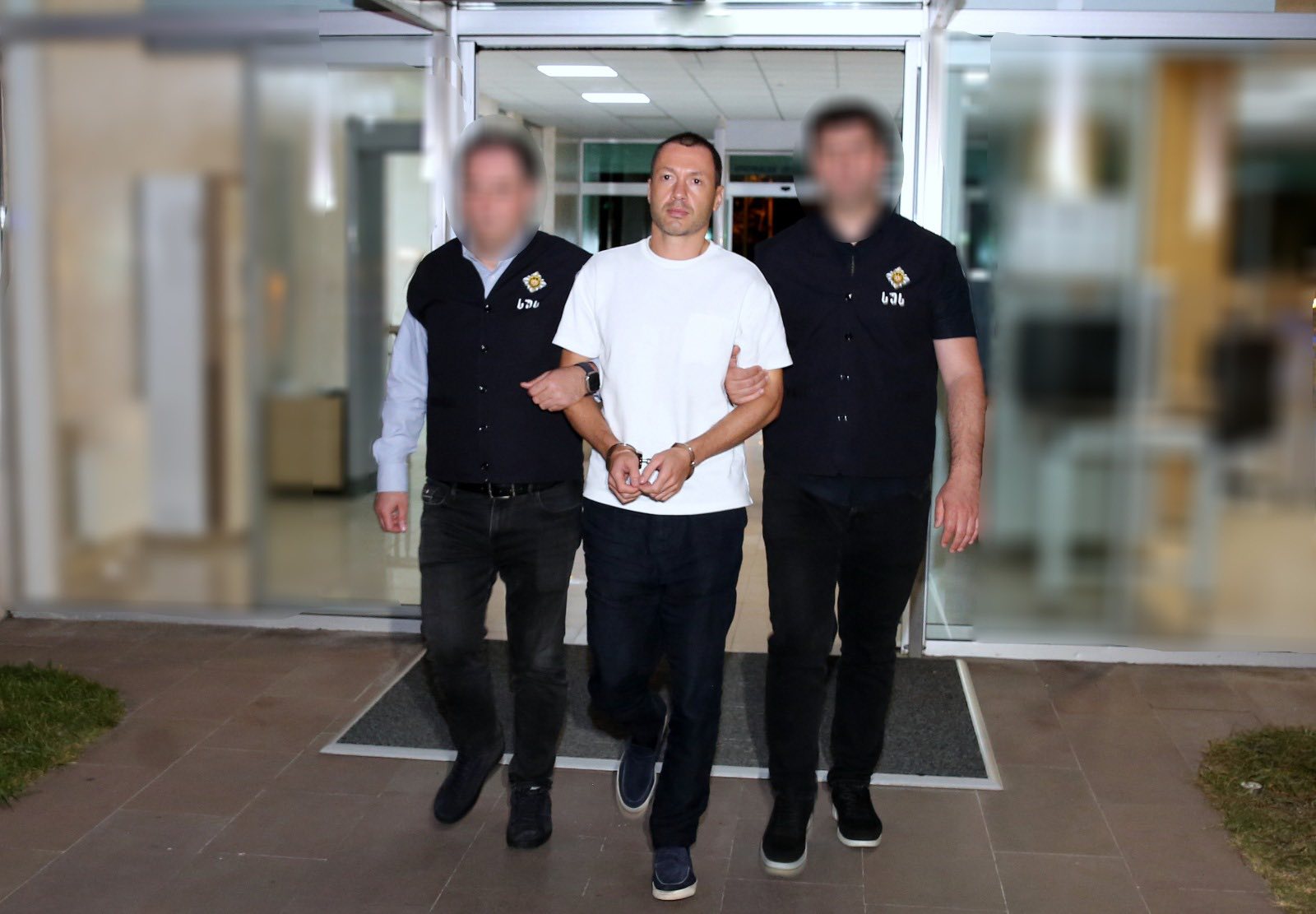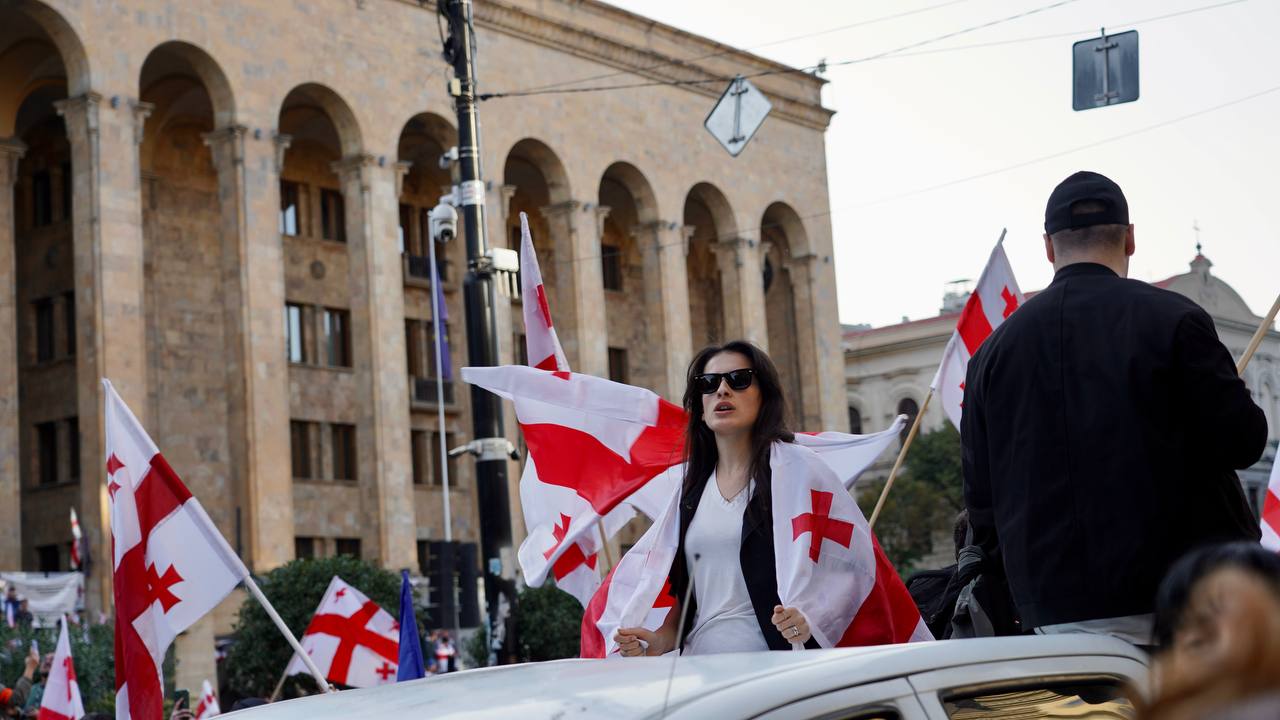'Garibashvili case': why Georgian authorities launch hunt for their former allies
Georgian Dream power purge
An unprecedented scandal is unfolding within ruling Georgian Dream party. Irakli Garibashvili — who twice served as the Georgia’s prime minister, chaired the party, and was considered the main protégé of its founder Bidzina Ivanishvili — has become embroiled in a corruption case. Garibashvili has already been questioned by the State Security Service (SSS), which said he “admitted to receiving illegal income over many years.” Earlier, his home was searched.
Alongside Garibashvili, two other former senior officials have been implicated in the corruption scandal — former head of the State Security Service Grigol Liluashvili and Prosecutor General Otar Partskhaladze. Their homes were also searched.
The Prosecutor’s Office and the State Security Service (SSS) have been holding regular briefings on the case, releasing new details almost daily.
According to the SSS, searches carried out at the homes of Garibashvili, Liluashvili and Partskhaladze — as well as eight individuals linked to them — uncovered over 7 million dollars in cash, 198 pieces of jewellery and watches, expensive paintings, several thousand pages of documents, 50 mobile phones, and 119 electronic devices.
At a briefing on 22 October, officials announced the arrest of Koba Khundadze, an associate of former SSS head Grigol Liluashvili. During a search of his property, investigators found more than 1.3 million dollars divided into 94 envelopes. Around 3 million dollars were also seized from bank safes belonging to Mikheil Chokheli, who is connected to former Prosecutor General Otar Partskhaladze.
However, no information has yet been released about the arrest of either Garibashvili or Liluashvili. Both have avoided public appearances and have not commented to the media. Garibashvili was last seen in public on 4 October, when he voted in the municipal elections. When asked by journalists from opposition outlets whether he expected to be arrested, he replied, “You’re pathetic.”
Local media have also reported that Garibashvili’s passport has been confiscated and that he has been banned from leaving the country.
A few days before the search of Garibashvili’s home became public, his wife, Nunu Tamazashvili, changed her social media cover photo to a picture of Garibashvili with Bidzina Ivanishvili.
As for Otar Partskhaladze, he has reportedly been living in Russia for several years and is said to have changed his surname to Romanov. He was seen attending the military parade on Moscow’s Red Square on 9 May 2025. The United States imposed personal sanctions on Partskhaladze in 2023.
Circle is tightening
Georgian media have long speculated about the imminent arrest of Irakli Garibashvili — a possibility reinforced by the recent arrests of several people from his inner circle.
Before the investigation reached Garibashvili himself, several former officials had already been arrested on corruption charges — among them former Defence Minister Juansher Burchuladze and former Deputy Economy Minister Romeo Mikautadze. Grigol Liluashvili’s relative, Bichiko Paikidze, is currently wanted by police, while his business partner, businessman Mamuka Zhghenti, has been detained. The total amount allegedly embezzled by those charged so far amounts to tens of millions of lari.
The case has also been linked to the apparent suicide of former Adjara governor Tornike Rijvadze. The incident occurred more than three months ago, but the circumstances surrounding his death remain unclear.
Why this has nothing to do with fighting corruption
Most Georgians understand that the searches and arrests have little to do with a genuine fight against corruption.
So why has Bidzina Ivanishvili turned against his former allies — and why now, at a time when the country is in the midst of a deep political crisis and anti-government protests have continued for nearly a year?
According to political analysts, the campaign is essentially a “cash grab.” Ivanishvili, they say, is replenishing the ruling party’s “black fund” by seizing money from officials who once benefited from corrupt deals he himself had authorised. Those who refuse to hand over their money “voluntarily” are being detained.
Anti-corruption researcher Besik Donadze told JAMnews that since Georgian Dream came to power in 2012, the government has announced electronic tenders worth more than 18 billion dollars and simplified procurement contracts worth almost 5 billion dollars.
“Just from these two types of contracts alone,” Donadze said, “the state has lost more than 2 million dollars.”
He argues that if this were a real anti-corruption drive, it would have a systemic character:
“Were Garibashvili, Liluashvili and Burchuladze the only ones making money? Many people at lower levels were involved. How does the theft happen? Through tenders, subsidies, permits, licences, and so on. Someone at the top structures the paperwork so the money can be appropriated. It then flows upward — first to Garibashvili and Liluashvili, and finally into a shared pool.
The authorities have detained heads of some companies, right? But what about those who signed contracts with them — the government officials and institutions? Has anyone punished them? The people who approved those deals?”
Another anti-corruption researcher, Ketevan Enukidze, also believes that Bidzina Ivanishvili had long been aware of Irakli Garibashvili’s schemes:
“In the current mafia-style system, corruption isn’t seen as a problem because everyone shares in the stolen money. It only becomes a problem when something in that scheme changes.”
What is Ivanishvili afraid of?
So what has changed? Why has Bidzina Ivanishvili — the country’s informal ruler — decided to take such a bold step and order searches against three former high-ranking officials? What is Ivanishvili afraid of, and what is he trying to achieve? These are the key questions now being asked by analysts.
There are no clear answers, only assumptions. One of the main theories is that authoritarianism is an expensive enterprise — and Ivanishvili needs money.
Researcher Besik Donadze points to three main challenges facing Ivanishvili: the lack of public legitimacy, ongoing street protests, and the threat of Western sanctions. According to Donadze, all of Ivanishvili’s current actions revolve around these three issues:
“He needs recognition. PR campaigns and lobbying abroad cost a fortune — and Ivanishvili is not the kind of man to spend his own money on that. So he has to draw from the common fund, forcing officials to return what they’ve taken.”
However, former president of the National Bank of Georgia and ex-MP Roman Gotsiridze finds this explanation unconvincing. He argues that the real goal is not money, but the consolidation of power — something Ivanishvili already values more than wealth:
“A fight against corruption has always been popular with the public. People are drawn to these kinds of spectacles. Arrests and the promise of ‘restoring justice’ help a ruler tighten his grip on power,” Gotsiridze says.
Some observers also believe Ivanishvili may have begun to see his former allies as a threat.
“He saw danger in those close to him — people who know things about him, who have money, who have their own small political circles. He feared that one day they might turn against him out of resentment. That’s why he decided to neutralise them,” Donadze suggests.
According to Gotsiridze, Grigol Liluashvili in particular may have posed the greatest risk to Ivanishvili:
“What does Ivanishvili fear most? The West — especially the United States. He sees anyone capable of sharing information about him with the Americans as a potential enemy. In that sense, Liluashvili is the most dangerous man: he knows more than anyone else, including about Ivanishvili’s ties to Russia.”
As for Irakli Garibashvili, Gotsiridze says Ivanishvili has grown suspicious of the former prime minister precisely because — unlike many other Georgian Dream officials — he has not been hit by Western sanctions:
“For Ivanishvili, that alone is enough to see Garibashvili as ‘a man of the West.’”
Another theory links these officials to the events of 4 October 2025, when the opposition planned a “peaceful overthrow” that failed, culminating in a botched attempt to storm the presidential palace and the arrest of the organisers and many participants. However, Ketevan Enukidze is firmly sceptical that any of the disgraced officials were actually “colluding” with the opposition.
Roman Gotsiridze argues that in Liluashvili’s case, the accusation of “treason” is more plausible than multi-million-dollar corruption:
“In Georgian Dream, everyone steals money, and unlike Garibashvili, Liluashvili steals the least. He isn’t considered a particularly corrupt official. The only way to discredit him among Georgian Dream supporters is to accuse him of treason or link him to the opposition.”
Enukidze also suggests a clan-based conflict:
“The clan of the current prime minister, Kobakhidze, was oppressing Garibashvili’s clan with Ivanishvili’s blessing. Why Ivanishvili went so far in targeting Garibashvili, I don’t know. Most likely, he was advised by someone close to him.”
Overall, there are many guesses and theories, but experts agree on one point: the moves are aimed at further consolidating the authoritarian regime and spreading fear.
“The purge initiated by Ivanishvili within his own team is part of measures to strengthen an authoritarian regime, accompanied by repression against the opposition and civil society. It is also an attempt to neutralise anyone who might have ties to the West or could be useful to the West (the US) in exposing Ivanishvili’s crimes and those of his regime in the future,” Gotsiridze says.
Reaction from members and supporters of Georgian Dream
When it comes to the scandal involving their former allies, members of Georgia’s Georgian Dream party repeatedly use two words: corruption and betrayal.
Senior party figures, however, have largely remained silent and refused to answer journalists’ questions. Georgian Dream Prime Minister Irakli Kobakhidze said he was aware of the situation but had no right to comment, insisting that all questions should be directed to the investigation.
Meanwhile, social media has seen active mobilisation: troll bots and genuine party supporters have been posting messages with roughly the same content — “they were shocked when they heard this,” “the search means nothing,” “Garibashvili wouldn’t do that,” “they’re in disbelief,” and similar phrases.
After new details emerged and footage of searches and arrests of some figures was released, the messaging shifted to: “Mr Bidzina will forgive no one’s betrayal.”
Georgian Dream power purge






















